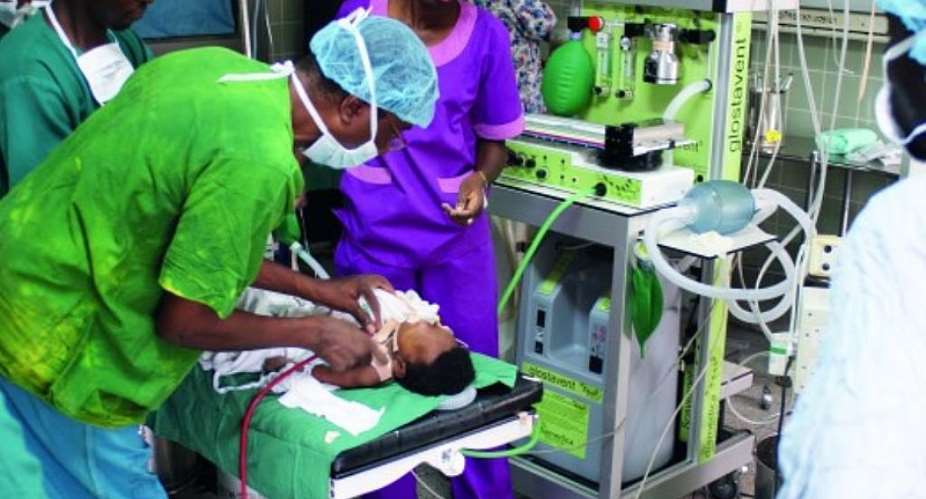The physician assistant (PA) is a highly trained medical practitioner, licensed and regulated by the Ghana Medical and Dental Council to practice medicine and dentistry. PAs undertake clinical, public health (preventive and promotive), and administrative services.
Universal health coverage (UHC) means all people at their various communities can have the preventive, promotive, curative, rehabilitative, and palliative health services they need, of sufficient quality to be effective, while ensuring that the use of these services does not expose the user to financial hardship. Ghana can learn lessons from countries like China, Mexico, Rwanda, Thailand, Turkey and Oman, who have successfully achieved universal health coverage.
The foremost PA (then MA) training school in Kintampo, established in 1969 (then Rural Health Training School) had the sole aim of training medical assistants to render mostly curative, preventive and promotive health services in the rural areas of Ghana. The narrative has since changed. The minimum academic requirement for a PA has now shifted to a bachelor’s degree.
In Ghana, the community based health planning services (CHPS) approach to healthcare provision remains the major strategy being adopted for the provision of primary health care services. PAs are the first line supervisors of the CHPS concept since they mainly serve at health centers (which are the main facilities within the sub-districts) attending to an estimated 70% of the population in these rural and periurban areas. This helps greatly in decongesting the district, municipal and regional hospitals, as well as the tertiary and quaternary referral centers, especially in the light of the ‘no-bed syndrome’. It is also instructive to note that PAs currently dominate at some district/municipal hospitals as well as private facilities in the provision of outpatient services and their delivery has been remarkable. Annually, over 100 million people are plunged into poverty due to ill health and inability to afford basic health services(WHO, 2017). This makes a well-implemented primary health care a poverty alleviation tool.
According to WHO, one-third of southeast Asia and Africa are forced to borrow or sell assets to pay for health care. Therefore, the lead role of PAs in the implementation of primary health care cannot be overemphasized. The aforementioned and more calls for the need to address the various constraints militating the effective functioning of PAs in the country. A major challenge is the outmoded prescription bracket for PAs at health centers. Malaria remains the commonest reported infectious disease in Ghana and the rural areas are the hardest hit.
Ironically, injectable medication such as IV Artesunate, used in treating severe malaria is outside the prescription bracket for PAs at the various health centers. This is unfair, considering the extensive training and competence of PAs and the fact that they attend to cases more life-threatening than malaria at their facilities. This and many other restrictions ought to be reviewed without further delay, in the interest of the thousands of patients who will have to be referred on such circumstances.
The increasing relevance of the PA is tremendously encouraging, and policy makers must make a conscious effort to better their lot in furtherance of the universal health coverage agenda. Key among areas in need of attention are the following:
A review of the job description of PAs (in the light of advancement in their training, knowledge and expertise) and a commensurate enhancement in their conditions of service.
Introduction of additional clinical specialty programs for PAs as well as graduate level research-based courses to help advance the PA profession both clinically and in academia. This will delineate the unique role of PAs and also help assert their competence and the deserved autonomy.
The formation of a separate regulatory body for PAs and other parallel medical professionals. Leadership should take steps to complete the processes leading to name change, from Physician Assistant to Clinical Officer to truly reflect our Independence of practice.
PAs remain the bedrock of primary healthcare in Ghana. Without them, attaining universal health coverage can only be a mirage.
Long live the PA profession
Long live Ghana
Authors:
Comrade Azeko
(PA, columnist, student of politics)
Salisu Siba (Shizzles)
(PA, Writer, MC)





 Whoever participated in the plunder of the state must be held accountable – Jane...
Whoever participated in the plunder of the state must be held accountable – Jane...
 A vote for John and Jane is a vote to pull Ghana from the precipice of destructi...
A vote for John and Jane is a vote to pull Ghana from the precipice of destructi...
 I’ll repay your abiding confidence with loyalty, understanding and a devotion to...
I’ll repay your abiding confidence with loyalty, understanding and a devotion to...
 ‘I’ve learnt deeply useful lessons for the future' — Serwaa Amihere breaks silen...
‘I’ve learnt deeply useful lessons for the future' — Serwaa Amihere breaks silen...
 I’m sorry for the embarrassment – Serwaa Amihere apologises for leaked sex video
I’m sorry for the embarrassment – Serwaa Amihere apologises for leaked sex video
 Dumsor: Matthew Opoku Prempeh not in charge of Energy sector – Minority
Dumsor: Matthew Opoku Prempeh not in charge of Energy sector – Minority
 Adu Boahen’s murder: Police arrest house help who was in possession of deceased’...
Adu Boahen’s murder: Police arrest house help who was in possession of deceased’...
 Akufo-Addo nominates Felicia Attipoe as Tema West MCE
Akufo-Addo nominates Felicia Attipoe as Tema West MCE
 Election 2024: I can't have someone I defeated twice as my successor – Akufo-Add...
Election 2024: I can't have someone I defeated twice as my successor – Akufo-Add...
